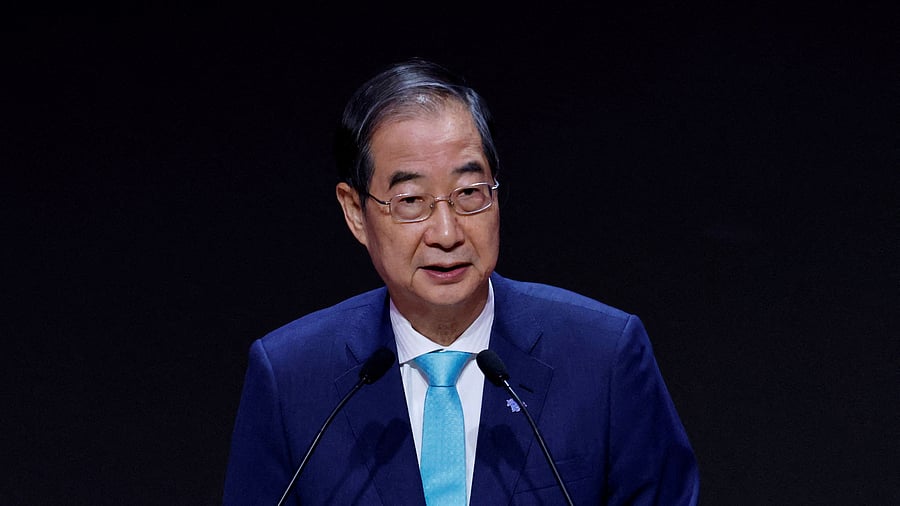
Now impeached South Korean acting president Han Duck-soo.
Credit: Reuters File Photo
Seoul: South Korea’s leadership crisis deepened Friday after lawmakers voted to oust a second head of state, the acting president, in less than two weeks.
The move prolonged the political vacuum that has gripped South Korea since President Yoon Suk Yeol shocked the country this month by briefly putting it under military rule for the first time in decades.
Lawmakers impeached and suspended Yoon on Dec. 14 over the martial law move, and Prime Minister Han Duck-soo stepped in as acting president. But Han’s tenure would also prove short-lived, as opposition lawmakers voted Friday to impeach Han as well.
This was the first time South Korea had impeached an interim leader. It raised fresh questions about who was in charge of the government and military in one of Washington’s most important allies, at a time when the country is grappling with North Korea’s nuclear threats and economic challenges at home. The political uncertainty has pushed business and consumer confidence lower and caused the currency, the won, to plunge.
The latest impeachment “suggests to the world the possibility that Korea’s political unrest could be prolonged and worsen,” Jeong Hoiok, a professor of political science at Myoungji University in Seoul, said in an email. This would cause “significant harm to the diplomacy and economic status that Korea has built so far.”
Han’s impeachment meant that the finance minister and deputy prime minister, Choi Sang-mok, would be next in line to be named acting president. But like Han, Choi has no electoral mandate.
The move to impeach Han on Friday came after he refused to appoint three judges to fill vacancies in the Constitutional Court, the body that will be deciding whether to reinstate or formally remove Yoon.
At the heart of the matter is how the court might rule on Yoon’s impeachment. Six or more justices out of the nine-member court must vote in favor of impeachment to remove Yoon from office. The top court currently has only six justices, after three others retired earlier this year, meaning that the impeachment could be overturned with just one dissenting voice in Yoon’s trial.
The opposition had pushed for Han, as acting president, to sign off on nominees to fill the bench in the Constitutional Court. But Yoon’s governing party argued that only an elected president had the power to appoint justices.
Han said Thursday that he would not appoint the nominees unless the rival parties came to an agreement on whether he had the authority to do so as the acting president, and on who should be appointed as justices.
An acting president should “refrain from exercising the president’s own significant powers, including the appointment of constitutional institutions,” said Han, a career bureaucrat.
Park Chan-dae, the opposition Democratic Party’s floor leader, said to reporters Thursday that Han’s words were “not those of an acting president, but of one who is admitting to insurrection.”
The opposition has accused Han of aiding Yoon in his brief declaration of martial law Dec. 3. Lawmakers accused Yoon of perpetrating an insurrection by sending troops into the National Assembly to block them from voting down his martial law and to detain his opponents.
The Constitutional Court has up to six months to decide whether to reinstate or remove Yoon. Yoon’s trial started Friday. He did not attend court, but was instead represented by his lawyers.
Yoon also faces investigations by police and prosecutors on charges including insurrection, which could lead to his arrest. On Friday, police raided a presidential safe house where Yoon had allegedly met with officials to discuss imposing martial law, according to the Korean news agency, Yonhap.
The political crisis has added to worries about South Korea’s economy, which was already facing slowing growth and worries about exports. On Thursday, the won, one of the weakest currencies in Asia this year, tumbled to levels against the US dollar not seen since the global financial crisis a decade and a half ago. The stock market is about 10 per cent lower this year, a sharp contrast to many major indexes, in Asia and elsewhere, that have posted double-digit gains.